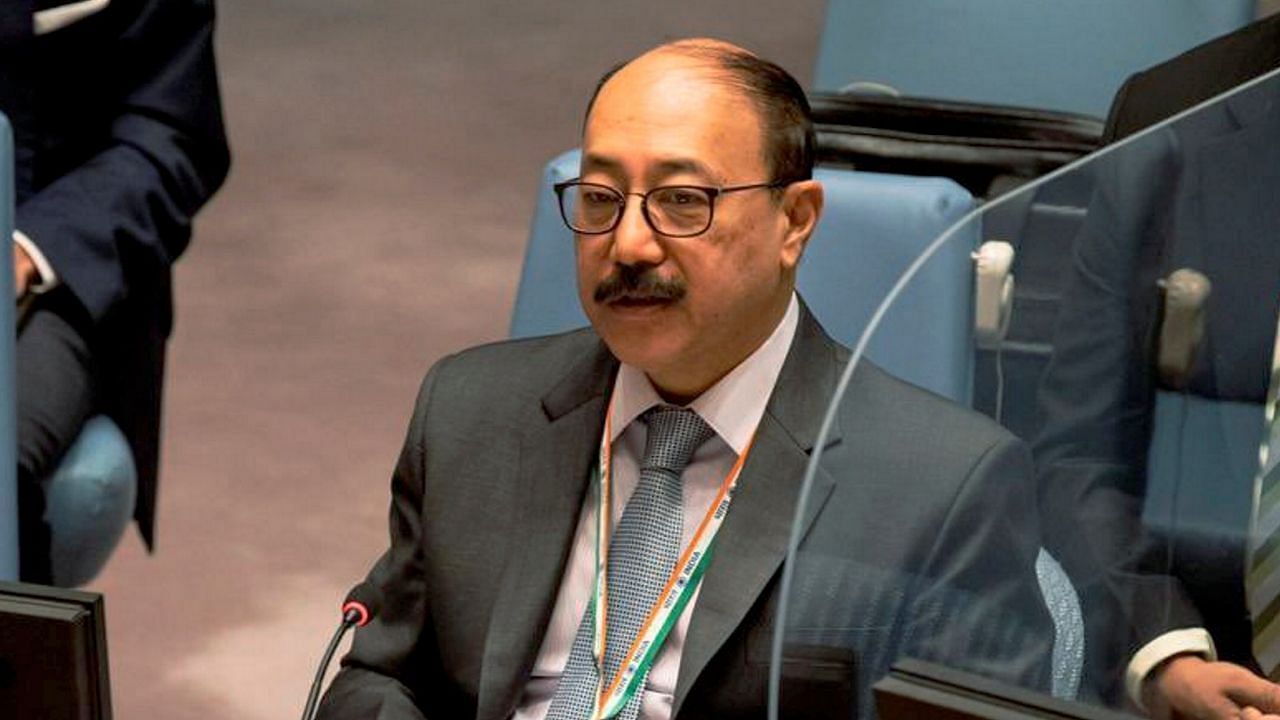A new beginning
India’s Foreign Secretary’s first visit to Myanmar after the military coup has sparkled the hopes for resolution of critical diplomatic and security concerns

India's Foreign Secretary (FS) Harsh Vardhan Shringla, of late, has been undertaking crucial trips to India's immediate neighborhood, as part of the South Block's fresh and dynamic position in keeping its neighbours constructively engaged. Such an engagement is not only diplomatic, security-linked and geo-political, but also welfare- and humanitarian-oriented. These visits have come after the vital overtures made by India's FS during his trip to Dhaka last year, preceding the high-profile visit of Indian President to Bangladesh during Victory Day celebrations. Soon after this, FS Shringla had paid a brief but highly meaningful visit to Naypyidaw and Yangon. Crucially, the FS also delivered one million India-produced vaccine doses as a token of gift for the people of Myanmar. This was indeed a humanitarian gesture.
It is well known that for the last one year, Myanmar's internal political situation has been uneasy, particularly since the military coup in February 2021, which also saw a bloody crackdown on the anti-military protests and political opponents opposing the military takeover of a legitimately elected civilian government. The coup had dethroned the Aung San Suu Kyi (ASSK)-led National League for Democracy (NLD) government which came through a resounding victory in November 2020 elections. The reasons behind the coup, as justified by Myanmar's military, were far from convincing as it alluded that ASSK was indulged in electoral malpractices and rigging. Subsequently, Suu Kyi was put behind the bars on account of frivolous charges.
It is imperative to point out that ever since the military usurped power in February last year, different global bodies sprang into action. The Association of Southeast Asian Nations (ASEAN) ushered in a five-point consensus doctrine, but due to complete indifference on part of the architect of the military coup, General Min Aung Hlaing, the plan did not take off. China initially expressed its disappointment in losing ASSK but soon, as in the past, warmed up to the new military regime, extending full Chinese support.
Amid these rapidly changing circumstances in Myanmar, the Indian FS's most recent Myanmar visit assumes immense importance. It was really a balancing act as Indian stakes, both geo-political and security, are quite high and any `big brother' attitude might affect the sensitivity of the bilateral relationship between the two countries. Shringla held important discussions with top brass of the State Administrative Council (SAC) as well as with several political parties including the NLD. He also met military strongman Min Aung Hlaing. According to veteran diplomats with exposure to Myanmar, India's stance appears to be in line with that of ASEAN, like call for release of political prisoners, resolution of issues through negotiations, and appeal for an end to all hostilities and violence. The Indian FS also met a number of foreign Ambassadors in Yangon to get a first hand feel of the `on-ground' situation. Meeting such a wide range of people, including representatives of civil societies, was no mean task.
Crucially, the most sensitive issue of security was also adequately addressed by the visiting Indian FS. In the recent past, there have been cases of Northeast insurgents launching ambushes and offensives, particularly carried out by Manipur People's Liberation Army (MPLA) and its other affiliates. It may be recalled that not very long ago, a young Assam Rifles officer along with his wife, nine-year-old son, and some Indian security personnel were slain in an ambush, strongly suspected to have been carried out by anti-India insurgents with tacit backing from a section of the Myanmar military that could possibly be close to China. Sensing that the FS would raise such issues seeking meaningful security cooperation from the Myanmar military establishment, the host government had handed over five cadres of the MPLA preceding the visit. This was a signal that Myanmar would cooperate with India in not allowing Myanmar territory to be used by the Indian Northeast Insurgents, either for training and shelter or for supply of weaponry. With the FS having flagged India's security concerns with the military dispensation, it can be hoped there would be a noticeable decrease, if not fully, in the cases of targeting of Indian security personnel along the Indo-Myanmar borders.
Another critical area which was discussed between the Indian FS and his hosts was of the several thousand Myanmar refugees currently sheltered in the state of Mizoram, ever since the military crackdown took effect. Hopefully, India's highlighting the issues would eventually see the return of the refugees to Myanmar at the earliest possible. All said and done, the only dampener was the Myanmar establishment's refusal to grant an audience to the FS with ASSK. Yet, Myanmar watchers believe that in the subsequent meetings, such possibility of a meeting with ASSK could be raised again. Notably, this is the first high-level visit by the Indian FS to Myanmar after the military coup. So, the Tatmadaw may possibly be wary of ASSK meeting requests. Yet, it is felt that they will relent as the bilateral train is moving on the right track. This seems just a beginning and is a major breakthrough in the bilateral relations. It deserves to be further carried forward.
The writer is a retired IPS officer, a security analyst and a former National Security Advisor to the Prime Minister of Mauritius. Views expressed are personal



